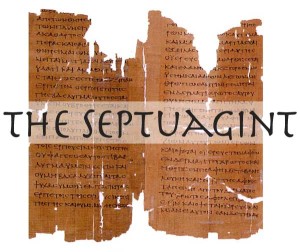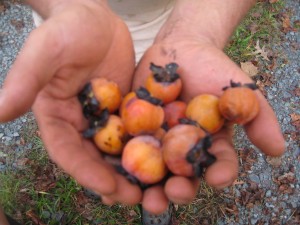I’m sitting here putting together a study on “When the Day Begins”, and I’m baffled that I even have to do this. My premise is that Day is clearly defined in Genesis 1. Not only does he call “Light” “Day” and creates a greater light to govern the Day, Elohim references Day and Night as two separate things all throughout Scripture. Yet it is a popularly held belief in Jewish circles (spilling over into the Hebrew Roots movement) that a “Whole Day” includes Night. These proponents claim Genesis 1 supports this position citing “And there was evening and there was morning – the first day”.
So I spent last night looking up every reference to “first day” and “echad” and “echad yom” in Scripture. I came to find “the first day” is a poor translation. A better rendering would be “one day” or possibly “united day”.
But given the strong belief that this verse is somehow saying the whole day not only includes night, but also begins in the evening, I spent even more time last night poring over every verse in the Old Testament that contained both “evening” and “morning” in the same verse.
Then, this morning I got up to read every verse in the Old Testament that mentioned evening, and then every verse that mentioned morning. While going through the “morning” Scriptures, I found myself saying, “And why am I doing this?” It seems so ridiculously obvious that the day begins in morning, that I feel like an idiot going to such great lengths to build my case.
The evening-to-evening proponents claim one has to consider the context to determine whether a mention of the day includes the night or not. If it includes the night, then one must go back in time to the prior evening for the start of the day. Strange.
There are two events in particular that address the evening of an enumerated day: the 14th day of the 1st month and the 9th day of the 7th month. The Passover Lamb is to be slaughtered on the evening of the 14th day and the Day of Atonement is to be reckoned from the evening of the 9th day until the following evening. The question is, Which evenings are being addressed here: the evenings that follow the enumerated days or the evenings that come the night before?
The evening of the 14th is mentioned in Leviticus 23. Given the actual event of Passover recorded in Exodus 12, it is clear that the reference in Leviticus is at the end of the 14th day. However, many in Jewish circles take this to mean it is the beginning of the 14th day due to their evening-to-evening reckoning. This causes immense confusion.
Leviticus 23:6 states the 15th day is Unleavened Bread. If the lamb is slaughtered at the beginning of the 14th (on the evening prior to the day), eaten during the night, then what does one do when morning comes on the day of the 14th? Unleavened Bread does not begin until the 15th day. If one reckons evening to evening, there is a gap between the morning of the 14th day and the evening that follows it; it is unaccounted for. It is not a “sabbath”, the Passover meal has already been eaten and the command to eat unleavened bread does not apply yet. Hmm.
The evening of the 9th is mentioned in Leviticus 23:32. This verse is used by the evening-to-evening proponents to justify their position, however, they recognize the mention of the evening of the 9th day to be the evening that follows the enumerated day (at the end), but use this to say the day begins in the evening (and includes night). Talk about jumping through hoops.
In my quest to discern the start of the day, be it the daylight portion or the “whole day”, I’m finding it will probably be easier to debunk the evening to evening theory, since the even-to-even proponents insist Genesis 1:3-5 can’t mean what it says in simple words.
The light is Day; it begins in the morning and ends in the evening, given the definitions of morning and evening, and the darkness is Night.
Elohim never called night “Day” or indicated the “Day” includes night. Yet folks surmise the night is included — I’ve even done it myself. But that’s not what Scripture says.
EDIT 9/6/16: Read my personal study on when a day begins, and let me know what you think.







 I was reading in Leviticus 23 last night and noticed that the instructions for the Feast of Tabernacles in verse 36 says, “For seven days present offerings made to YHWH by fire, and on the eighth day…” I then noticed this instruction to “present offerings made to YHWH by fire” are also found in verse 8 (Feast of Unleavened Bread), verse 23 (Yom Teruah), and verse 27 (Yom Kippur). This particular phrase was not made during the Feast of Weeks (Shavuot), however now I realize we are told to do the same there.
I was reading in Leviticus 23 last night and noticed that the instructions for the Feast of Tabernacles in verse 36 says, “For seven days present offerings made to YHWH by fire, and on the eighth day…” I then noticed this instruction to “present offerings made to YHWH by fire” are also found in verse 8 (Feast of Unleavened Bread), verse 23 (Yom Teruah), and verse 27 (Yom Kippur). This particular phrase was not made during the Feast of Weeks (Shavuot), however now I realize we are told to do the same there.